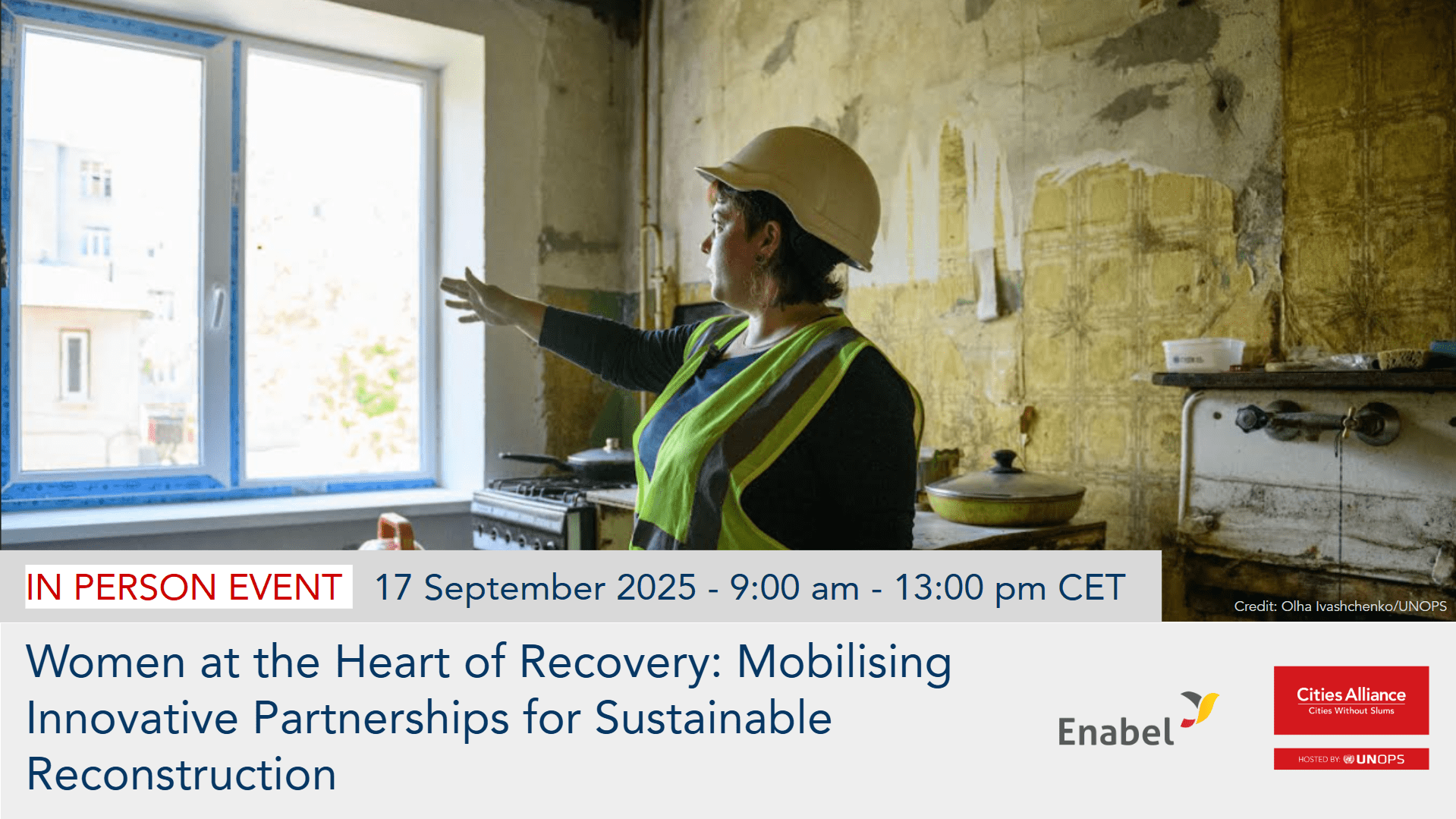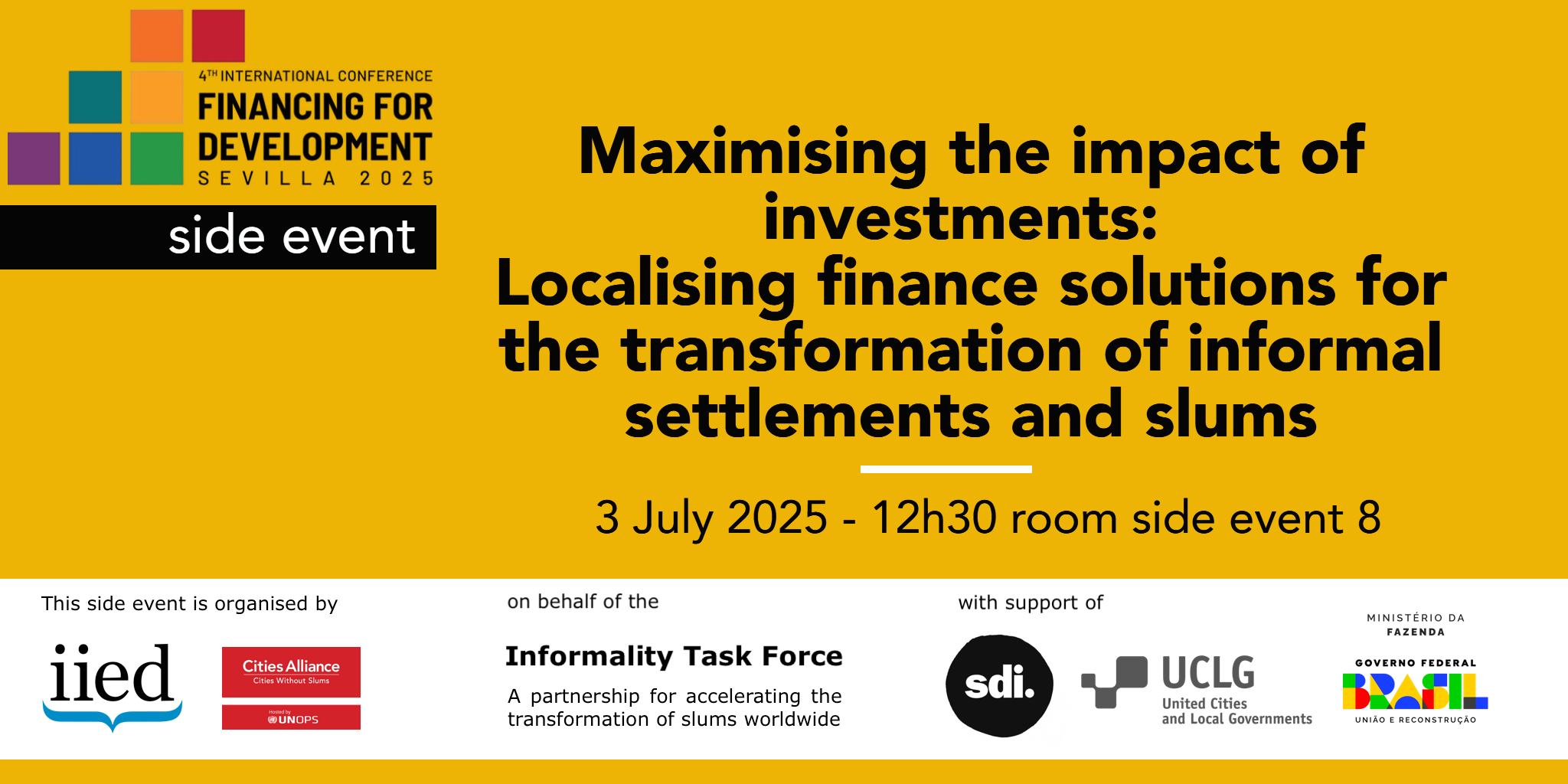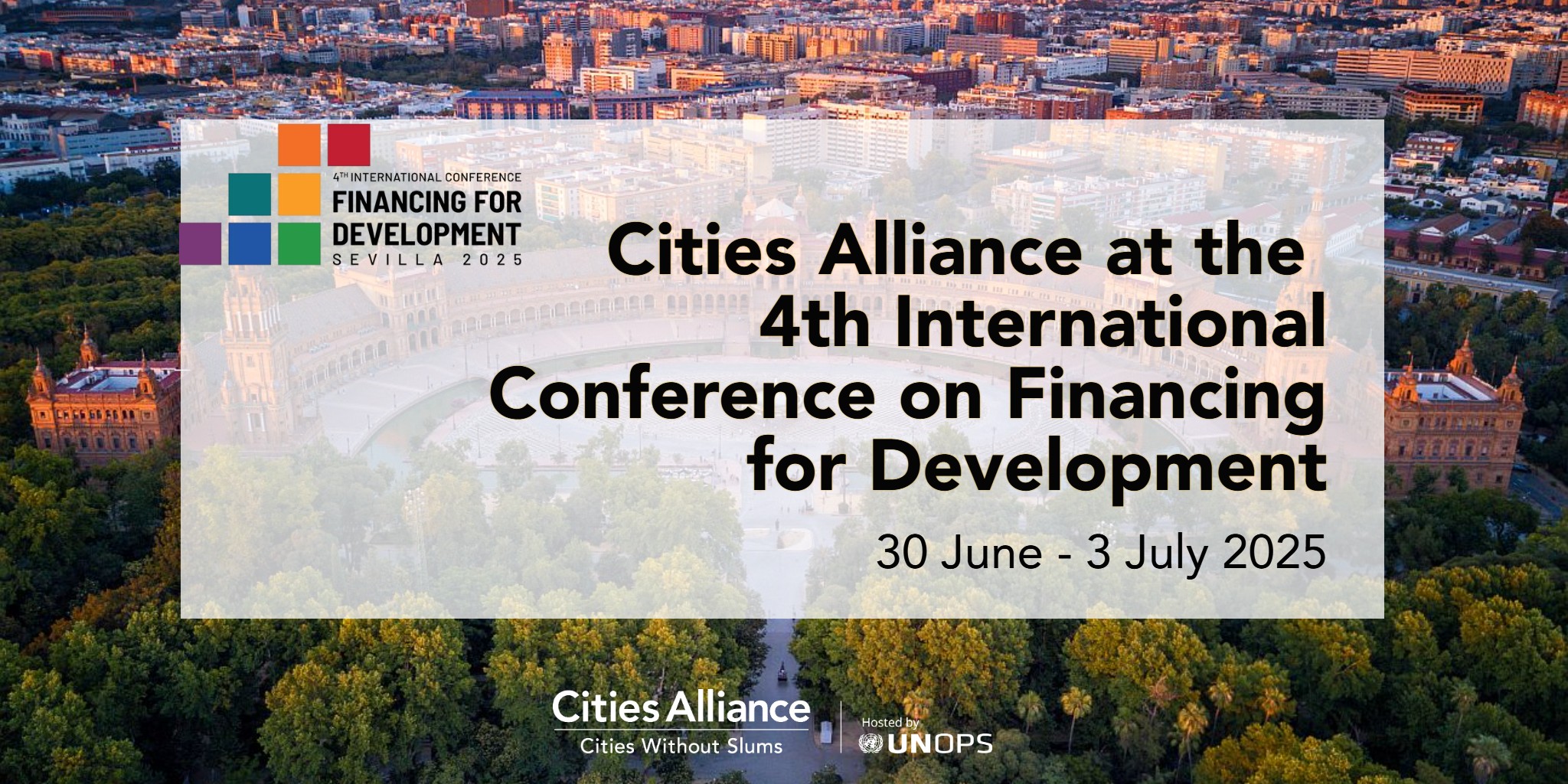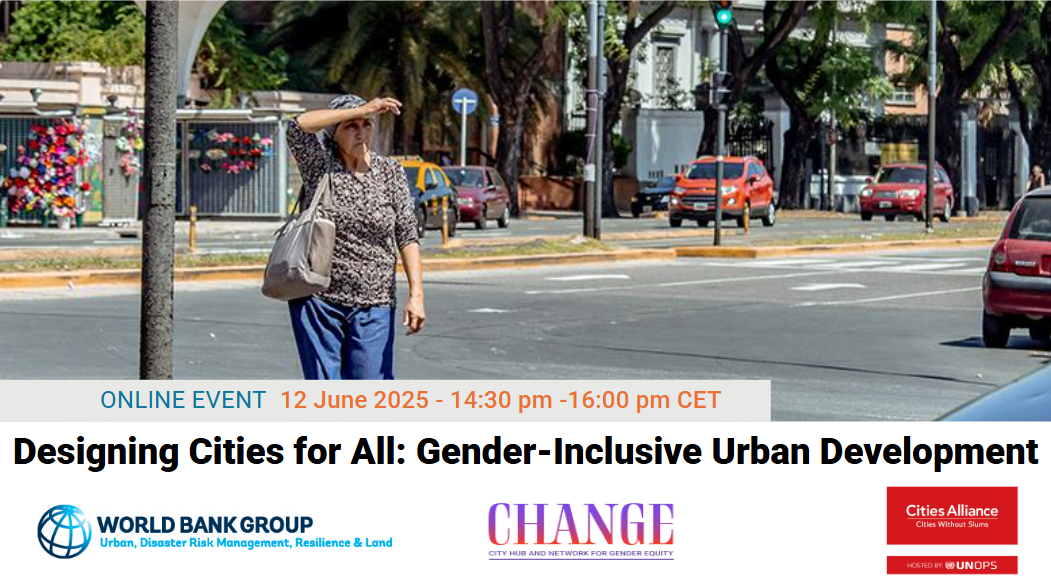- Who We Are
- How We Work
- Regional / Country Initiatives
- Legacy
- Core Themes
- Working Groups
- Portfolio & Results
- Newsroom
- Resources
Women and Informality in Cities. What can Europe do?
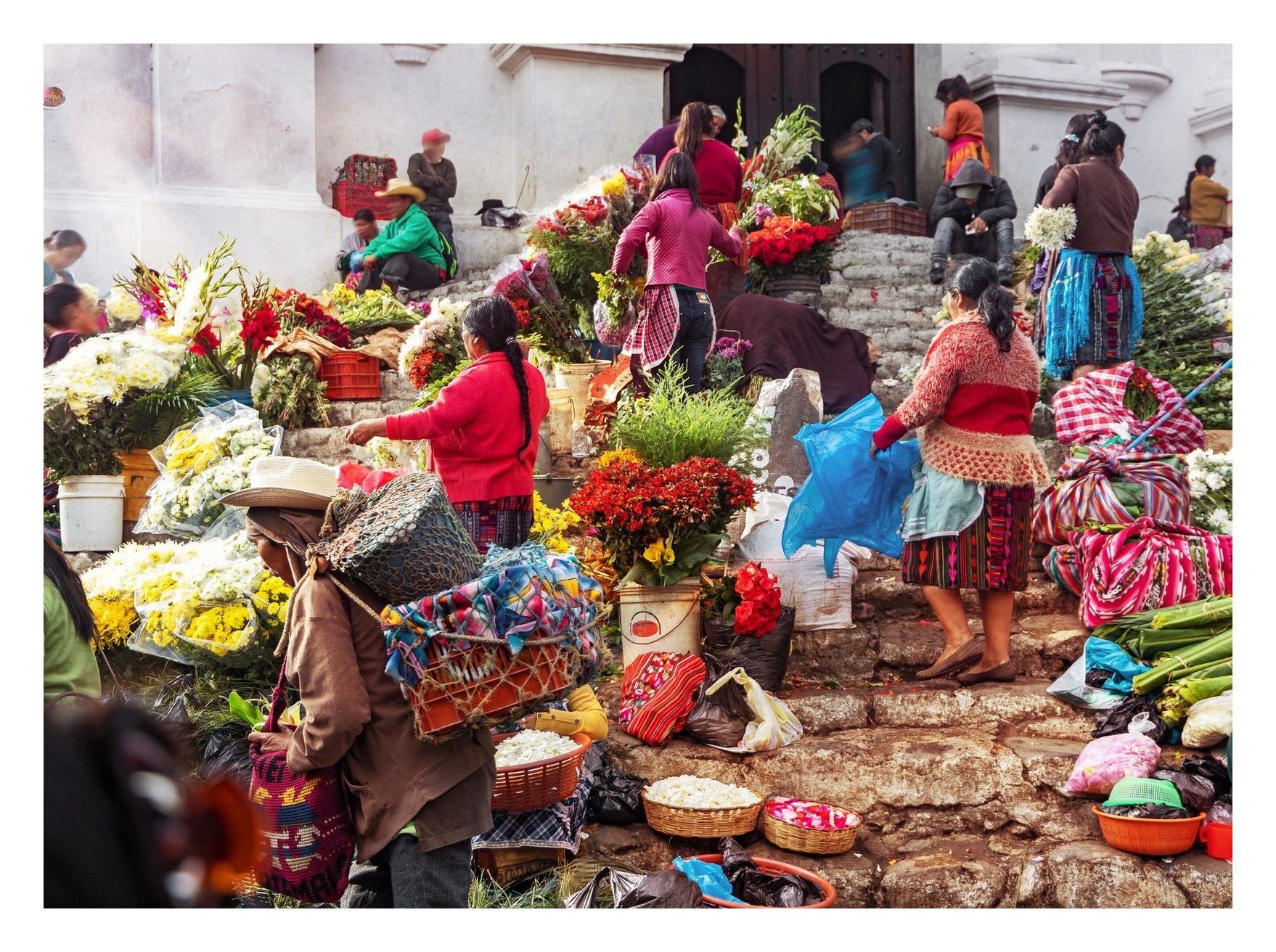
Webinar on 13 April 2021 - 15.30 - 17.30 CET
Join online https://us02web.zoom.us/j/87927412563
Follow the live streaming on Facebook
See the recording of the event on our Youtube channel
Most people in the world live their lives in the context of informality, either living in informal settlements, working in the informal economy, carrying unpaid domestic and care work or all these conditions together. Women are disproportionately represented in both the informal economy (with lower incomes, and greater insecurity), and in informal settlements (with limited access to basic services) and are therefore more negatively affected by individual and system shocks. To develop inclusive cities, authorities involved in urban development and upgrading need to ensure that livelihoods are addressed, economic security provided, and that strong support measures are implemented to support the vulnerable who live in the context of informality.
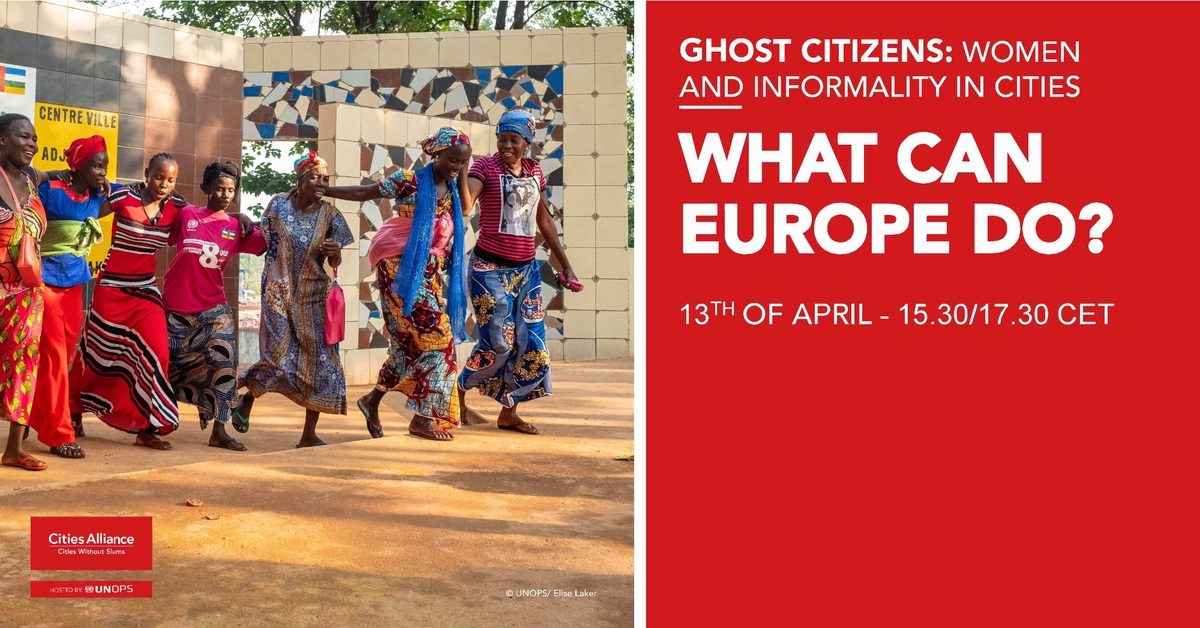
The European Gender Strategy and the Gender Action Plan III that provides the gender priorities for the EU external actions 2021-2027 have the potential to boost and support national and local efforts to formulate and enact legislation that is gender equitable and gives legal recognition to people who are living in informal and precarious contexts.
This panel conversation is an opportunity for community leaders, gender, and urban experts to share experiences and ideas with EU policymakers to discuss and shape future EU policies and actions.
Agenda
Introduction and moderation: Giulia Maci, Cities for Women programme lead, Cities Alliance
Topics of discussion:
- EU GAP III: priorities and next steps: Virginia Manzitti, Coordinator of the Gender team - Unit on "Gender Equality, Human Rights and Democratic Governance", DG for International Partnership (INTPA), European Commission
- Poverty targeting, gender equality and empowerment beyond the EU - Charlotte Isaksson, Senior Gender Expert to EEAS Principal Advisor on Gender (PAG) and on UNSCR 1325/WPS, European External Action Services (EEAS)
- The impact of COVID19 on informal workers - Sarah Reed, Study Coordinator at WIEGO (Women in Informal Employment: Globalizing and Organizing)
- Informal economy and women – Oksana Abboud, Coordinator at StreetNet International
- Addressing the gender dimension of informality in cities – Alice Sverdlik, Researcher, Human Settlements Group, IIED (International Institute for Environment and Development)
- Unpaid care work in times of the COVID19 crisis in Europe – Maria Isabelle Wieser, Vice-Director of foraus, Head of Romandie and Think Tank Hub Geneva
Open Q&A
Closing reaction – EU representatives
Closing remarks and next steps – Cities Alliance

